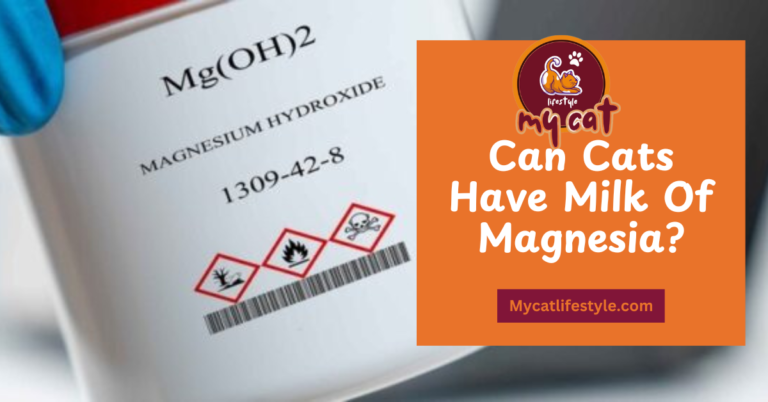Why Cats Like Fish: A Deep Look at History & Science

Cats are true carnivores, specifically obligate carnivores. This means their bodies are fine-tuned to thrive on a diet composed mainly of meat. They lack the ability to effectively break down plant-based foods like fruits and vegetables. Most cat owners are likely familiar with these feline dietary requirements.
Yet, there’s an intriguing contradiction. Cats have a notorious love for fish, particularly tuna. How is this possible given their strict meat-based diet? A recent study exploring feline taste perception sheds light on this curiosity that many cat enthusiasts have pondered.
The findings of this research are not just fascinating; they offer profound insights into the sensory differences between cats and humans, enhancing our understanding of our feline friends’ unique view of the world.

What Are The Historical Theory For Cats Liking Fish
Historians trace the origins of the first cats back to the Middle East around 10,000 years ago, which is also believed to be the period when cats began to be domesticated.
These early felines were likely descendants of the African wildcats, natural carnivores who primarily hunted small mammals such as rabbits, rats, and mice. They occasionally preyed on birds and reptiles as well. Living in desert environments meant that fish was not part of their diet, suggesting that cats’ taste for fish did not originate from these ancestors.
Egyptians And The Domestication Of Cats
While it remains a theory, some scholars suggest that it was the Egyptians, about 5,000 years ago, who first introduced fish to cats. This hypothesis is intriguing but not yet confirmed.
The cradle of Egyptian civilization was along the Nile River, where agriculture flourished. After harvesting, Egyptians often faced rodent infestations that threatened their food supplies and trade. Recognizing the natural predatory skills of cats, Egyptians might have seen them as valuable allies in protecting their crops. To entice these feline hunters into their homes and transition them into domesticated pets, it’s theorized that Egyptians used fish from the Nile as bait.
This narrative provides a possible explanation for how cats might have developed a taste for fish, linking their domestication closely with the rise of ancient Egyptian society.

Why Do Cats Like to Eat Fish?
Domestic cats evolved from African Wildcats, creatures unlikely to have ever dined on fish. Apart from a few breeds like Maine Coons, Abyssinians, and Bengals that don’t mind getting their paws wet, most cats are not natural swimmers. Yet, many cats have a surprisingly keen taste for fish. What explains this culinary preference?
One popular yet unconfirmed theory suggests that cats developed a taste for fish when the ancient Egyptians used it to attract them into their settlements. To get a deeper understanding, we consulted Dr. Danielle (“Elly”) Page, a Raleigh-based veterinarian with expertise in pet nutrition and the founder of AnimKy.com. Dr. Page helped identify several reasons why cats might favor fish:
- Opportunistic Eating: Cats have adapted to cohabitation with humans, learning that it’s easier to eat what’s already available—like table scraps and leftovers—than to hunt. If fish is on the menu, most cats will gladly partake.
- Appealing Scent: The strong, distinctive odor of fish might repel humans but is incredibly appealing to cats, thanks to their powerful sense of smell.
- Sensitive Taste Receptors: Cats have a refined sense of taste that helps them detect foods rich in essential nutrients, such as amino acids. Taurine, for instance, is crucial for maintaining good vision, digestion, and heart function.
- High Protein Content: As obligate carnivores, cats need a diet high in protein. Their keen senses make fish an obvious choice, packed with the high-quality protein they require.
- Dietary Variety: Introducing fish into a cat’s diet can enhance the appeal of their meals. Used as a tasty topper, fish can help entice underweight or picky cats to eat.
This combination of factors contributes to the allure of fish for domestic cats, making it a favored component of their diet.

Benefits of Fish for Cats
Dr. Page assures us that as an occasional indulgence, plain, cooked fish is absolutely safe for cats, emphasizing “occasional” to avoid nutritional imbalances. She suggests adding a small serving of fish to their regular meals for notable health perks:
Firstly, fish provides a rich source of lean protein, vital for our carnivorous companions. Moreover, it’s an outstanding source of omega fatty acids. “Opting for cold-water fish like salmon can offer additional benefits due to omega-3 fatty acids, which are great for joint and coat health,” Dr. Page explains. Oily fish such as salmon, sardines, and mackerel contain the highest levels of these beneficial fats.
For cats less enthusiastic about fish, Dr. Page recommends considering a fish oil supplement. Although comprehensive research on fish oil benefits for cats is still underway, existing studies suggest it can help reduce inflammation. She emphasizes the importance of selecting a high-quality supplement specifically formulated for cats, advising against sharing human-grade products, and ensuring the dosage is correct.
Fish is also a crucial source of taurine, an amino acid essential for maintaining good eyesight, heart health, and digestion. Unlike other mammals, cats cannot synthesize taurine and must derive it from their diet, with fish being an excellent provider.
When choosing which type of fish to feed your cat, Dr. Page notes it depends on the health benefits you aim to achieve. “Salmon is a top choice for its EPA and DHA content—two omega-3 acids known for their health properties. However, salmon is relatively high in fat and calories, making leaner white fish a better option for cats needing to manage their weight.”

Can Cats Eat Raw Fish?
While cats are natural carnivores, the question of whether they can safely eat raw fish is important to consider. Dr. Rebecca Greenstein, Chief Veterinarian at Kleinburg Veterinary Hospital and Veterinary Medical Advisor for Rover, advises against feeding raw fish to cats. She notes, “There is officially no scientific proof that demonstrates feeding raw has any benefits over traditional diets. In fact, the only peer-reviewed research available highlights the risks.”
One major concern with raw fish is the potential for food poisoning from harmful bacteria such as Salmonella and E. coli. Additionally, parasites like tapeworms can be transmitted through raw fish consumption.
Another significant risk involves Thiaminase, an enzyme found in raw fish that breaks down thiamine (vitamin B1) in the body. A deficiency in thiamine can lead to several serious symptoms in cats, including:
- Head tremors
- Loss of coordination
- Depression
- Ventroflexion of the head (where the head and neck are bent downwards)
- Seizures
If not addressed, a severe thiamine deficiency can be fatal. Considering these risks, it’s worth pondering whether feeding your cat raw fish is a safe choice.
Should I Feed my Cat Fish?
While an exclusive fish diet isn’t appropriate for cats, incorporating fish as a supplement can be beneficial if your cat enjoys it. Veterinarian Dr. Jean Hofve suggests that fish can make up to 15% of your cat’s total diet, provided it’s an added protein source. However, it’s crucial to consult your veterinarian before making any changes to your cat’s diet. Let’s delve into the benefits and considerations of including fish in your cat’s meals.
Nutritional Benefits
Fish is an outstanding source of protein, omega-3 fatty acids, and taurine, all vital for a cat’s health. However, the nutritional value can vary significantly between different types of fish, with some being healthier than others. It’s important to research the specific benefits and potential risks of various fish types to make informed dietary choices for your cat.
Raw, Cooked, or Commercial Fish-Flavored Cat Foods?
Domestic cats, unlike their wild cousin the Fishing Cat, are not equipped to handle raw fish, particularly farmed varieties, which may harbor harmful pathogenic bacteria.
Cooked wild-caught fresh fish can serve as a nutritious snack or treat in moderation. Opt for low-mercury species such as sole, cod, haddock, tilapia, pollock, most shellfish, and crustaceans, which are safer choices.
For commercial cat foods, prioritize premium products that are transparent about their ingredients and sourcing. The best choices are those made with natural, high-quality components, ensuring a healthier diet for your feline friend.

How to Cook Fish For My Cats
Since feeding raw fish to cats is not recommended, one practical alternative is to provide pre-packaged fish-based treats formulated specifically for feline diets. Options include fishy meal toppers designed to enhance your cat’s regular diet, creamy fish purees, and crunchy tuna bites, among others.
Regarding tuna, the canned variety meant for human consumption can be a suitable treat for your cat but only in limited quantities. Human-grade canned tuna typically contains high levels of mercury and offers minimal heart-healthy taurine, so it should only be given as an occasional treat. It’s best to choose light tuna packed in water rather than oil and ensure it’s free from flavorings or added salt.
When cooking fish for your cat, methods like boiling, grilling, or roasting are preferable. Avoid fried and smoked fish, take care to remove all bones, and forego any seasonings you might typically use. As a safety measure, always consult with your veterinarian before making any additions or changes to your cat’s diet.
What Kind Of Fish Do Cats Like The Most?
Every cat has her favorites, and the types of fish that cats often enjoy most include:
- Tuna
- Salmon
- Sardines
- Halibut
- Tilapia
- Cod
- Flounder
Cats typically favor tuna and salmon due to their potent smell and strong flavor. Sardines are also a hit, largely because of their high fat content.
Can Cats Be Allergic To Fish?
Yes, unfortunately, cats can be allergic to fish. Dr. Jamie Whittenburg, a veterinarian and director of Kingsgate Animal Hospital in Lubbock, Texas, explains that while we understand how food allergies occur in cats, the why—especially why certain cats develop an allergy to fish—remains unclear. It is suspected that genetic factors may play a role. The reaction is usually due to an abnormal immune response to a protein within the fish.
Symptoms to Watch For
- Red, inflamed skin, especially on the chest and abdomen
- Itchiness
- Frequent licking of affected areas
- Hair loss
- Bleeding
- Less commonly, symptoms may include vomiting, stomach pain, and diarrhea.
Dr. Danielle Page points out, “It can be challenging to determine if your cat is suffering from a food allergy, environmental allergy, or flea allergy as the symptoms can be similar.” She recommends consulting a veterinarian who can perform diagnostic tests to identify the cause.
The most effective method to diagnose food allergies in cats is a diet trial, where the cat is fed either a novel protein (like duck, rabbit, kangaroo, or venison) or a hydrolyzed diet where the protein is broken down so small that it doesn’t trigger the immune system. Both types of diets require a veterinarian’s prescription.
Treatment Differences
Treatment for food allergies differs significantly from environmental allergies. “The only treatment for a fish allergy is to eliminate fish from the diet—it’s usually that simple,” Dr. Page notes. However, if a cat suffers from environmental allergies, or both food and environmental allergies, the approach is different and may include:
- A diet enriched with omega-3 fatty acids
- Omega-3 fatty acid supplements
- Corticosteroids
- Immunotherapy
- Immunosuppressive drugs
- Antihistamines
These insights from Dr. Whittenburg and Dr. Page provide a comprehensive overview of how to handle fish allergies in cats, highlighting the importance of professional diagnosis and tailored treatment plans.

What Types of Fish Can I Feed My Cat?
While salmon and tuna are commonly regarded as suitable fish choices for cats, it’s important to note that these types can contain high levels of mercury and other pollutants. However, that doesn’t mean you should never feed your cat these fish; simply be informed about your options and take necessary precautions. Safer and more nutritious alternatives include herring, menhaden, cod, and sardines.
Feeding Tips:
- Opt for low-mercury species such as wild salmon, cod, sole, tilapia, and most crustaceans when choosing cooked fish.
- When selecting canned fish, choose small types like sardines, herrings, and anchovies that are preserved whole in water, avoiding those preserved in oil or with added ingredients.
- For commercial cat food, look for premium products that feature high-quality, natural ingredients sourced responsibly.
- Limit fish to no more than 15% of your cat’s total diet.
- Cooking methods such as grilling or boiling are preferred to preserve the nutritional value of wild fish.
Precautions:
- Avoid any type of cooked fish that is intended for human consumption such as smoked fish, fried fish, fish fingers, and even canned fish as they are not suitable and can be harmful to cats.
- Keep fish preparations plain, without any additives, seasonings, or flavorings to avoid the ingestion of potentially harmful substances.
- While fish provides many nutrients, it does not meet all dietary needs of cats. It is rich in fatty acids and amino acids like taurine but generally lacks minerals like iron, calcium, and sodium.
- Thiaminase, a harmful toxin in some fish, can destroy essential vitamins like thiamine (Vitamin B1) which are crucial for maintaining a healthy nervous system, though problems typically arise only with excessive consumption over time.
- Excessive fish in a cat’s diet can lead to serious health issues such as hyperthyroidism, inflammatory bowel disease, and urinary tract disease, which is particularly life-threatening in male cats.
- Hyperthyroidism in cats can also be triggered by excessive iodine intake and exposure to bisphenol-A (found in some pet food cans).
- Ethoxyquin, a preservative found in some fish meals, has been linked to health issues in animals. Choosing meals with natural preservatives is a better alternative.

Frequently Asked Questions
Why does my cat prefer fish?
Many cats are drawn to fish because of its strong smell and rich flavor, which can be more enticing than other foods.
Do cats prefer meat or fish?
Cats are obligate carnivores, meaning they require a diet of primarily animal proteins. The preference between meat or fish can vary from cat to cat, but both are commonly enjoyed.
Why do cats like fish but hate water?
While cats may love the taste of fish, many dislike water due to their fur’s lack of waterproofing, which makes it uncomfortable and difficult to dry off once they’re wet.
Is it OK for cats to eat fish?
Yes, cats can eat fish, but it should be given in moderation and properly prepared (cooked and deboned) to avoid health issues like exposure to high levels of mercury or harmful bacteria.
Final Thoughts
Most cats adore fish due to its enticing smell and high protein content, but not all cats have the same taste. While many cats love fish, some may have sensitivities or allergies to it. Understanding your cat’s preferences and dietary needs is crucial, and moderation is always key in their diet.
Historically, the affinity of domestic cats for fish may be attributed to the early stages of feline domestication where humans might have played a role in introducing fish as a new type of prey, though it could also be a natural evolution of their diet when exposed to fish.






